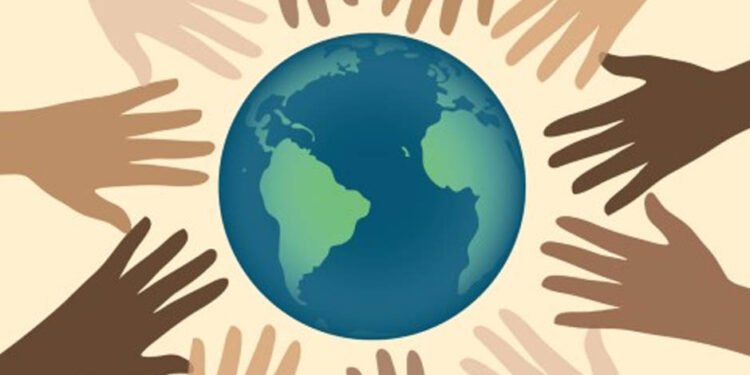In academia, humanities studies have little promise for societal transformation. Embedded within the fabric of these programs lies the profound commitment to understanding and addressing the multifaceted challenges communities worldwide face. From poverty alleviation to healthcare access, conflict resolution, and disaster relief, the spectrum of issues tackled by humanities studies is vast and impactful. This article explores the significance of pursuing degrees in humanities, exploring the top programs that equip individuals with the skills and knowledge to catalyze positive change.
Understanding Humanitarian Studies
The best humanitarian degrees embody a multidisciplinary approach to tackling crises and fostering sustainable development. This field’s essence lies in alleviating suffering and advancing human welfare through diverse interventions, from policy advocacy to direct aid provision. Drawing from disciplines like sociology, political science, anthropology, and international relations, these studies provide a holistic framework for analyzing intricate social issues and crafting viable solutions. Students delve into the complexities of global challenges, gaining insights into cultural dynamics, political structures, and economic systems that shape the contexts. Through rigorous coursework and experiential learning opportunities, they develop critical thinking skills and practical competencies for effective action.
Interdisciplinary collaboration facilitates a nuanced understanding of diverse perspectives and fosters innovative approaches to humanitarian practice. Graduates emerge equipped to navigate the complexities of the work with a comprehensive understanding of ethical principles, cultural sensitivity, and political dynamics. Ultimately, these degrees empower individuals to contribute meaningfully to global efforts toward social justice, human rights, and sustainable development.
The Importance of Pursuing a Degree in This Field
- Fostering Empathy and Commitment
A degree in this field nurtures a profound sense of empathy and commitment to enhancing the welfare of communities worldwide. Through academic rigor and practical experience, students cultivate the passion and dedication necessary for effective humanitarian work.
- Acquiring Expertise for Complex Challenges
Students delve into conflict resolution, disaster response, and social justice, gaining the analytical skills and practical knowledge needed to address pressing global challenges. This comprehensive education equips graduates with the tools to navigate the complex terrain of the work effectively.
- Empowerment for Meaningful Change
Armed with a deep understanding of interconnected issues facing vulnerable populations, graduates are empowered to contribute meaningfully to efforts for positive social transformation on a global scale. Whether as aid workers, policymakers, or grassroots activists, their robust foundation enables them to effect tangible and sustainable change.
Top Degree Programs in Humanitarian Studies
- Master of Arts in Humanities Action: This interdisciplinary program combines coursework in conflict analysis, peacebuilding, and actions to equip students with the skills to address complex emergencies and promote sustainable peace. Through fieldwork and internships, students gain practical experience in crisis settings, preparing them for careers in organizations and government agencies.
- Bachelor of Science in Global Development Studies: Designed for undergraduate students passionate about international development, this program offers a comprehensive overview of critical issues in global growth, including poverty, inequality, and environmental sustainability. Students explore various approaches to development, from community-based initiatives to large-scale policy interventions, and engage in hands-on projects to apply their knowledge in real-world contexts.
- Certificate in Humanities Logistics: Effective logistics and supply chain management are critical in emergencies and disasters to ensure timely aid delivery to affected populations. This certificate program provides specialized training in logistics operations, procurement, and inventory management, equipping students with the technical skills needed to support operations in resource-constrained environments.
- Doctorate in Humanities Studies: For those seeking to advance scholarship in humanitarian studies, a doctoral program offers the opportunity to conduct original research and contribute to academic discourse. From examining the intervention’s ethics to analyzing aid policies’ impact on recipient communities, doctoral students delve into pressing issues at the forefront of humanitarian practice and policy.
Conclusion
In an increasingly interconnected world fraught with the best humanitarian degrees, the demand for skilled professionals capable of addressing these issues has never been more pronounced. Pursuing a degree in humanitarian studies gives individuals the chance to effect tangible change in the lives of others while cultivating a profound comprehension of the intricate nature of human endeavors. Aspiring practitioners and scholars are pivotal in effecting transformative change within communities and constructing a more equitable and empathetic global society. Through dedicated education and training, these individuals acquire the necessary tools and knowledge to navigate the multifaceted landscape of the work effectively. By leveraging expertise and insights, they can devise innovative solutions to pressing the crises, fostering resilience and empowerment among vulnerable populations worldwide. Ultimately, investing in education catalyzes positive societal transformation, ushering in a future characterized by compassion, solidarity, and sustainable development.












